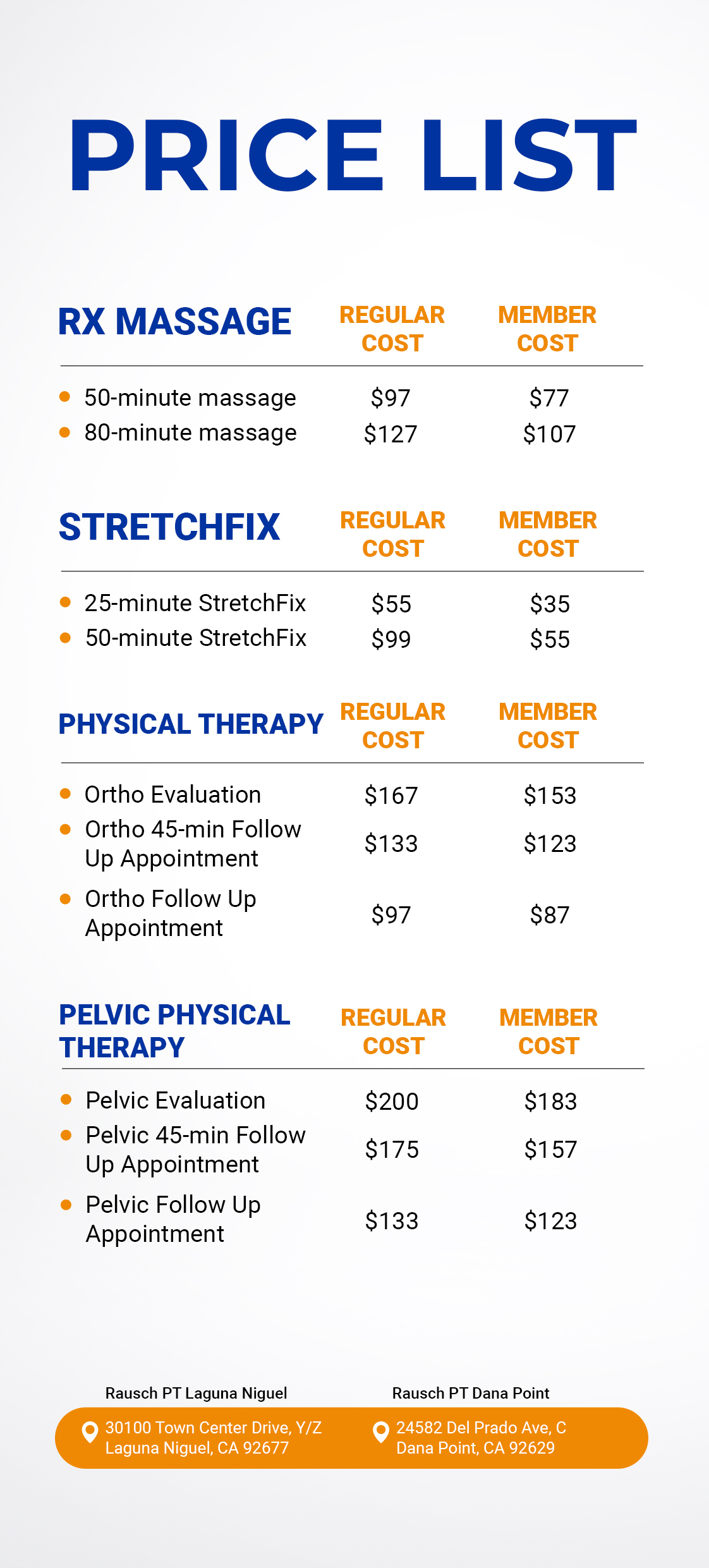Tight hips can subtly impact your daily life and activities, causing discomfort or limiting your movement. Recognizing the signs of restricted hip mobility is key to preventing issues and improving,
Your Sleeping Position Can Affect Your Health — This Is Why
November 27, 2020 5:16 pm / Category: Dana Point
Are you waking up with pain and stiffness every morning? It may have nothing to do with your activities from the day before and everything to do with how you slept. Rausch PT at Dana Point can help you address your pain and provide a preventative plan. Here are some insights into how different sleep positions can affect your health. Call us at (949) 276-5401. We’re here to help you!
The position in which you sleep is arguably one of the most personal things about you. Some people are loyal back sleepers, while others can’t snooze if they’re not laying on their stomach.
Whatever side or position you choose is often whatever you find most comfortable — rather than something you actively think about. But, it might be time to put some thought into your sleeping position as it could be affecting your health.
Here are the pros and cons of the back, side, and stomach sleeping. Your sleeping position might never be the same again after reading this.
Sleeping on your stomach
This is one of the least common sleeping positions, according to Sleep Health Solutions, with roughly 7% of adults sleeping this way. In general, this sleep position is the worst for your health because of the strain it puts on your neck.
The heaviest part of your body is the middle and when you sleep on your stomach, it causes your spine to overarch and according to Sleep Health Solutions, strains your back and neck. In time, this can lead to neck pain and nerve issues as well as numbness or tingling in the extremities.
“If you are sleeping on your stomach and notice you are suffering back pain, there probably is a reason,” Bill Fish, a certified sleep science coach, told mindbodygreen (mbg). “Since the majority of the weight of the human body is around your centre, that core pushes into the sleep surface further and basically puts strain on your spine in the wrong direction, causing back and neck pain.”
Sleeping on your stomach can also be hard on your face. If you sleep in this position, you’re probably no stranger to waking up with indentations. Cosmetically speaking, sleeping on your stomach could result in lines forming on your face that might not have formed had you slept on your back.
“Since we all spend around a third of our lives asleep, these ‘sleep lines’ get repeatedly reinforced and etched into your skin over time, like folds in leather shoes,” said Healthline.
Sleeping on your back
This is the best position for your neck and back, as it allows your spine to stay in a natural position. For the health of your back, this is by far the best option but the pillows you use can either help or hinder this.
“Sleeping on your back can be good and healthy, but your pillow should be really flat to that so you don’t have your chin to your chest,” naturopathic sleep doctor Catherine Darley N.D. told mbg.
“Additionally, being too elevated on your pillow can put pressure on the low back. Maybe they have a really big pillow so their neck is cranked up to the side, or it’s maybe they have too flat of a pillow and their neck is sagging down, causing misalignment and over years that’s not good for your cervical spine.”
For those who experience snoring or sleep apnea, sleeping on your back can exacerbate these things and might not be the best choice for you in that sense. Sleeping on your back causes gravity to force the base of your tongue to sink into the airway, which according to Greatist, can obstruct breathing and in turn, cause you to snore.
And finally, if you’re concerned about the cosmetic side of sleeping, your back is the best option here. Sleeping on your back means you won’t wake up with lines or indentations on your face from your pillowcase every morning and in turn, will save you from adding unnecessary lines to your complexion.
Sleeping on your side
A 2017 study found side sleeping to be the most common position and for good reason. The lateral posture of side sleeping is usually the most comfortable for people and according to Sleep Health Solutions, is recommended by sleep specialists because of its benefits. Side sleeping allows your spine to remain elongated and neutral, which helps prevent back, neck and shoulder pain.
According to Healthline, left side sleeping is actually the best option for your health and has the most science-backed benefits. While externally our bodies are pretty much symmetrical, the placement of our organs are asymmetrical and how we choose to rest can influence how these organs work.
For example, sleeping on your left side aids digestion and effectively allows gravity to move waste through your colon and can encourage a morning trip to the bathroom. It has also been found to help heartburn, as lying on the left side allows the gastric juices to stay lower than the esophagus while sleeping, which is not the case with right side sleeping.
Sleeping on your side (either left or right) has also been found to help your body clear interstitial waste from your brain, which according to Healthline, may reduce your risk of developing Alzheimer’s, Parkinson’s and other neurological diseases.
The only real downside to side sleeping is the pressure it puts on your shoulders and arms. This is why it’s important to swap sides when your arm or shoulder is feeling a little sore during the night. If pain persists, you might have to try sleeping on your back instead.
While choosing a sleeping position is totally up to you, arming yourself with the benefits of certain positions compared to others will help you make an informed decision when it comes to your health.
Reference: {https://thelatch.com.au/best-sleep-position/}
If you find yourself in discomfort or think you could benefit from a personalized exercise plan, talk to a Physical Therapist.
Let’s talk! We are here to help. Give us a call for a complimentary assessment.
Did you know there’s no prescription needed from a doctor to see us?
(949) 276-5401






